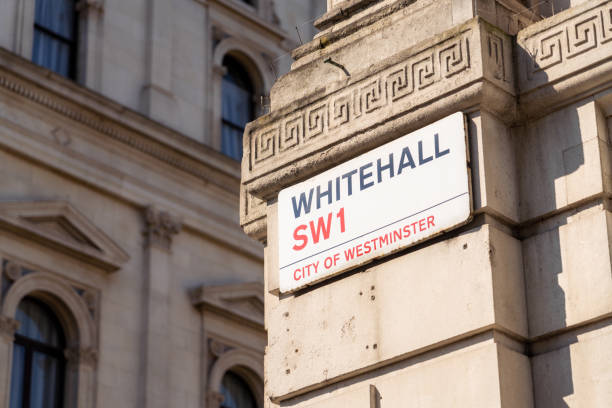From the Government’s big mini-budget to Labour’s big lead: A defining week for UK politics and public affairs – part 1

Part 1 of our review of a defining week in UK politics, which will have significant impacts for businesses in Energy and Industrials, Tech, Capital Markets and Financial Services.
Part 2 can be found here.
The Government turns from its record, and the markets take a turn for the worse
The old cliché is that a week is a long time in politics. Just a week ago, Liz Truss’s new Government presented its ‘Growth Plan 2022’. Despite being dubbed a ‘mini-budget’, there was nothing mini about it: this very big fiscal giveaway contained £45bn worth of tax cuts – the biggest such package in about 50 years.
Business groups initially welcomed the cuts to Corporation Tax and National Insurance, which had been promised throughout Liz Truss’s leadership campaign. But it was the announcement of additional tax cuts, like the (quickly reversed) abolition of the 45p top rate of tax, that really surprised the markets, and upset MPs and voters. The cut solely benefited the highest earners – which in the context of high Government debt and a cost-of-living crisis astonished most independent commentators. Even the IMF has criticised the package in an extraordinary warning to a G7 country.
All of these tax cuts appear to be funded through additional borrowing. Without the normal oversight provided by the Office of Budget Responsibility, there is little clarity into the long-term impacts on government finances. Sound money or fiscal responsibility is at the core of the Conservative brand, but suddenly Liz Truss’s new government appeared to be acting recklessly with the country’s finances.
The pound’s value tumbled immediately, and within days a run on government bonds became a fire sale that nearly toppled a number of pension funds, the Bank of England has had to buy up unlimited amounts of government debt, and banks pulled hundreds of mortgages from the market in anticipation of soaring interest rates, as analysts warned of precipitous falls in housing prices.
A stark change of direction
While the pound appears to have rallied since the Bank of England’s intervention, this does not bode at all well for a government that is less than a month old. But since the Brexit referendum in 2016, UK politics has become increasingly unstable: the UK has now had four Prime Ministers in a little over six years.
The new Truss government is determined to distance itself from its predecessors, with very little policy continuity between them. Both of Boris Johnson’s main post-Brexit agendas have been shelved: ‘Levelling up’ – the mission to use infrastructure investment and devolution to spread prosperity more equitably around the country – has been more or less forgotten (though it lives on as a slogan). And the future of the green agenda is now in doubt after the appointment of several climate sceptics to the Government front bench.
What has taken the place of these agendas is a headlong pursuit of economic growth: a review of the Net Zero strategy has been ordered by the new climate-sceptic Business Secretary. And growth is no longer a vehicle for levelling up: the new Chancellor has said plainly that his sole priority is growing the economy, not worrying about how the gains are shared. Now the Government defines itself in contrast to its predecessors, reversing most of the fiscal policy of the last government, and criticising the last decade as a ’vicious cycle of stagnation’.
The Chancellor believes that his approach – of cutting taxes first, and pushing through supply-side reforms to areas like the planning system, business regulations, childcare, immigration and digital infrastructure later – will create growth, and get the UK on course for a new 2.5% annual growth target. But observers inside and outside the Conservative party are sceptical.
Time is running out
Financial markets are not the only ones to take fright at the Government’s fiscal package. Conservative MPs really don’t like it either. They mainly backed Liz Truss’s leadership rival, Rishi Sunak, who accurately predicted the response of the markets to Truss’s tax-cutting pledges. Now there are all kinds of nuclear options under discussion amongst Tory MPs: there are reports that letters calling for a no-confidence vote in Liz Truss have already started to go in, with other MPs reportedly in secret talks with Labour about how to defeat the Government’s must-pass Finance Bill. Losing such a vote would be the death knell for the Government, and it could lead to a General Election. Readers should take all of this with a pinch of salt, however – despite the extraordinary anger on Conservative benches, MPs are unlikely to vote for their imminent unemployment, given the likely outcome of such an election.
Ultimately the most critical constituency for the Government – voters – seems to have moved decisively against the Government too. Polling in the days since the mini-budget has shown the Conservatives losing their usual lead on economic policy – normally their strong suit – along with nearly every other issue, and losing ground to Labour in voting intention. Labour has now built up a solid lead from every polling company, which if repeated at a General Election, would likely produce a majority Labour Government. With two years to the next election, at most, the Government has limited time to prove that its radical free-market policies can work.
Part 2 can be found here.
Dan Hogan is Aspectus’ Public Affairs Lead. He is at Conservative Conference this week, gathering insight into key policy areas affecting Energy and Industrials, Tech, Capital Markets and Financial Services, and spending time with the key decision makers whose choices affect your business. If you want to know more about how Aspectus’ Public Affairs team can help you, get in touch.

